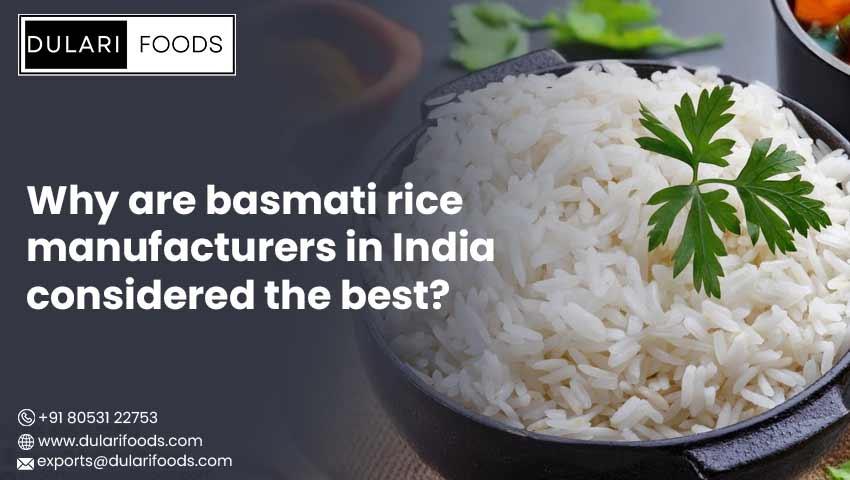Basmati rice is loved by many because of its unique fragrance, long grain, and fluffy texture. It is often called the ‘queen of rice’ considering its serving in many Asian cultures. The surging popularity of this rice is not only in India but also on a global scale, showing that it is both an important food item and a product for export markets.
The basmati rice manufacturers in India become important, as these people make sure that this precious rice is grown, processed, and supplied authentically and in quality. The climate in the northern part of the subcontinent provides the best conditions to cultivate basmati rice, the cultivated grains are known for their taste and health benefits.
In this blog, we will learn about basmati rice and why India has become the world leader in basmati rice production.
Understanding Basmati rice
It is a variety of long-grain aromatic rice, which is popular for its flavor and separate grains when cooked. Basmati rice is a native of the Indian subcontinent with the same rich aroma, nutty flavor, and long grains that elongate to about twice their raw size when cooked.
As compared to ordinary rice varieties, this is welcomed for its dry and flaky texture which makes it ideal for rice-based recipes, such as biryanis, pulao, and many other cuisines.
Increasing Global Demand for Basmati Rice
The demand for basmati rice has increased tremendously over the years, especially in the Middle East, Europe, and North America. In the year 2020, “India and Pakistan contribute over 90% of worldwide basmati rice’s cultivation, with India being the largest exporter.
- Between the years 2022-2023, India exported about 4.6 million tonnes of basmati rice worth USD 4.8 billion, most of it to Saudi Arabia, Iran, Iraq and UAE.
- Besides these countries, there are several other target markets for export, such as Europe and especially the United Kingdom. In 2021 UK alone consumed basmati rice of about 366,000 tonnes, of which the export value was about 380 million US dollars.
- The basmati rice market is expected to grow at a CAGR of 4.6% from 2023 – 2028 since there is growing acceptance of high-end varieties of rice in foreign delicacies.
Why Indian manufacturers are considered best?
Best Climate and Soil: The climatic characteristics and the fertile soil of Punjab and Haryana states make India an ideal place to grow quality basmati rice.
Age-old farming techniques: Indian industries have long been practicing agricultural methods that are passed down through generations and help in improving the taste and quality of rice.
Quality Ensured Basmati: Every process of Indian basmati rice, its growth, collection, and production, undergoes several quality tests, which are important in maintaining quality from within to the outside, texture and aroma, and national and international standards.
Very High Export Level: India is the leading exporter as it does about 65% of the world’s basmati rice trade; this demonstrates why Indian rice continues to be liked in the world.
Wide range of Basmati: Indian manufacturers offer organic and premium basmati with a variety of additions to the increasing global need.
Advanced Processing Technology: They adopt modern milling and processing techniques to avoid damaging attributes of basmati rice, such as long grains and aroma.
Safe Working Environment: The facilities producing basmati rice in India follow eco-friendly agriculture and growing methods, providing an ethical production line.
Affordable Rates: Irrespective of the high quality, and price competitiveness that Indian basmati manufacturers offer on the global markets allows many people to buy basmati rice.
Conclusion
If you are also in need of original basmati rice, Dulari Foods is one of the best basmati rice manufacturers in India. With a commitment to deliver the highest quality rice products to our customers, we use strong Quality Assurance and Quality Control processes that ensure every grain of rice meets the highest possible national and international standards.




